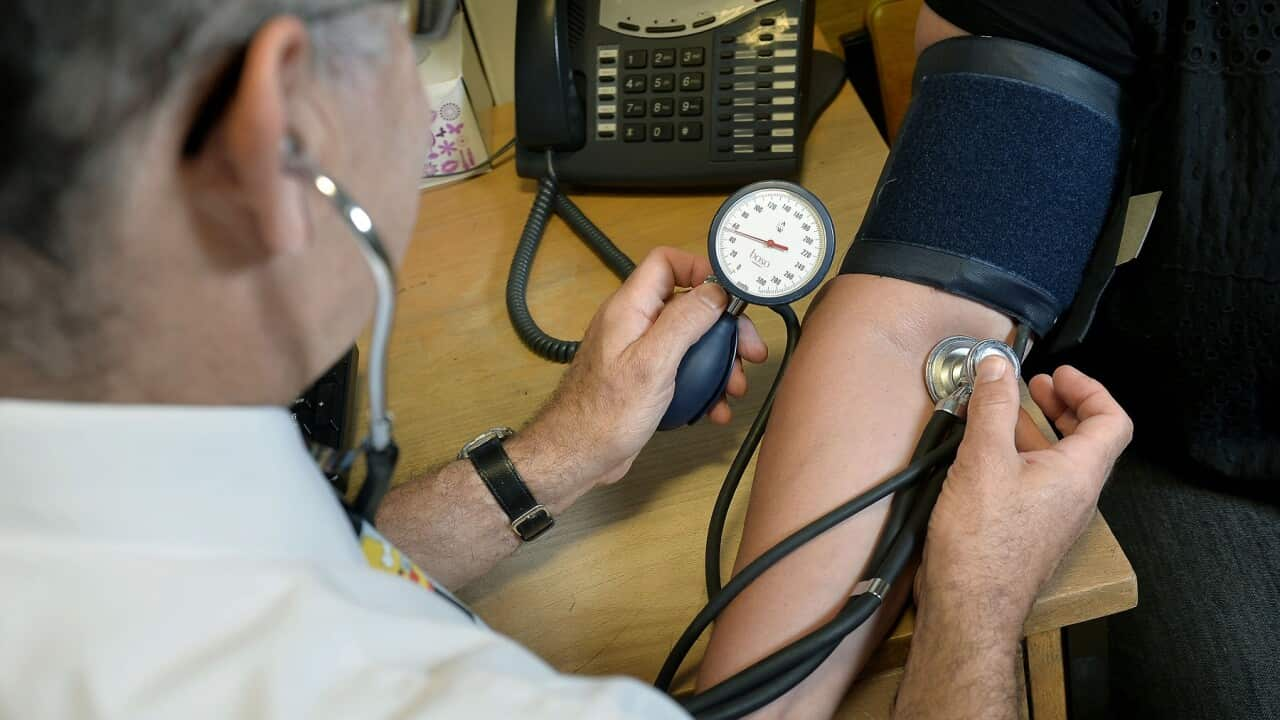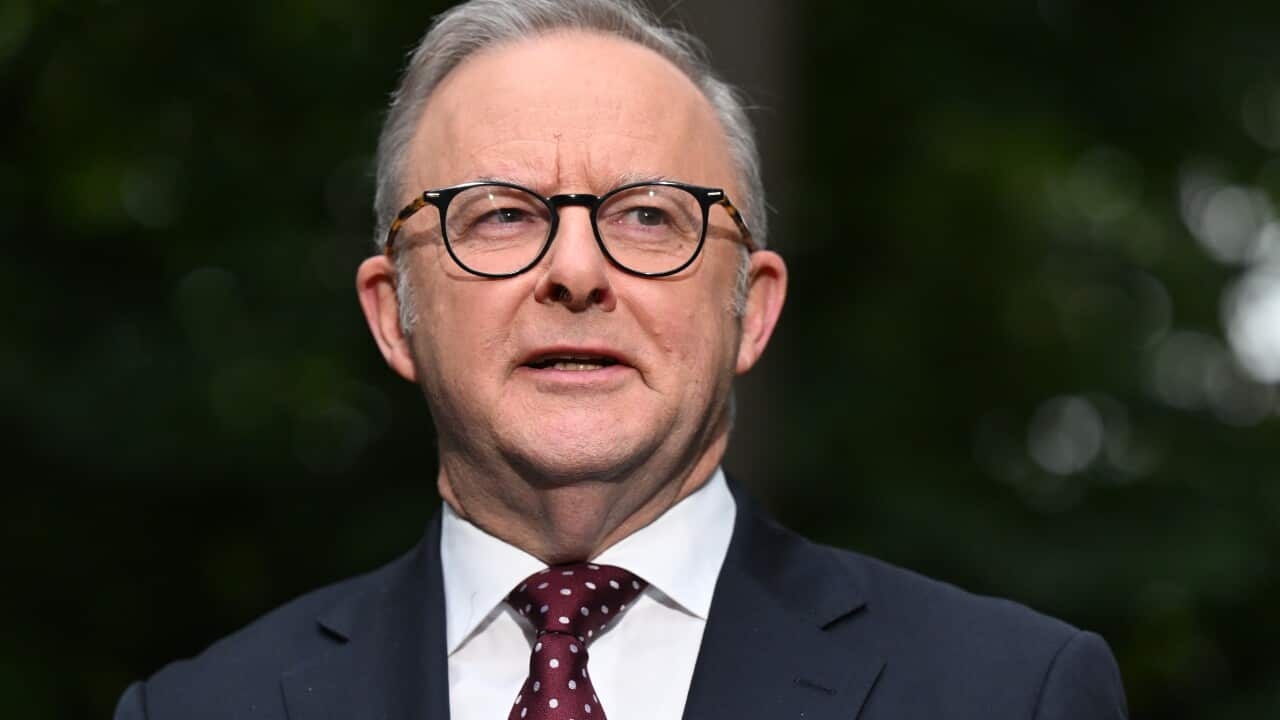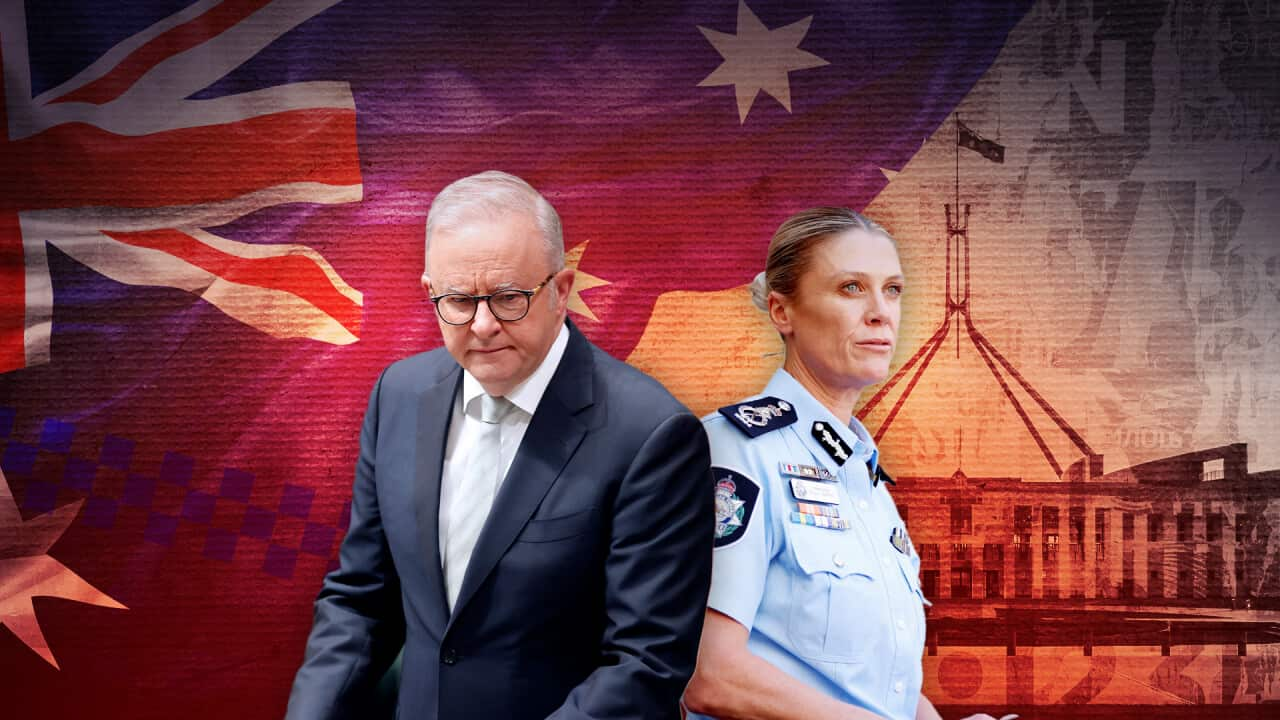Listen to Australian and world news, and follow trending topics with SBS News Podcasts.
TRANSCRIPT:
"As a female GP who sees many patients with complex care needs, particularly mental health conditions, the consultations are quite long. That's not a complaint, that's actually a good thing - it helps to improve patient outcomes."
Meet Dr Ramya Raman, a GP based in Western Australia and the Vice President of the Royal Australian College of General Practitioners.
Her experience of longer and more complicated consultations with patients is at the centre of this year's industry survey, known as the Heart of the Nation report.
It's found the average appointment time for most GPs has become longer, clocking in at just under 20 minutes - an increase of around a minute that College President Dr Michael Wright says is not surprising.
"This year some important findings include that 99 per cent of Australians said they could see a GP when they needed to - but what we're seeing is that complexity of care is increasing."
As Dr Raman's experience suggests, mental health is at the heart of this complexity.
Dr Wright says 71 per cent of GPs have nominated mental health - most commonly anxiety and depression - as a top reason for patient presentations, an increase of ten per cent since the survey began in 2017.
But there are also growing rates of chronic disease and issues that arise as more people get older.
GP: "Morning Nic, please come in. Nice to see you.
PATIENT: "Hello, how are you."
GP: “Please take a seat."
The Health of the Nation report says there has been a slight increase in the number of people delaying a visit to the doctor due to the cost of treatment - but there's some good news in the report in terms of being able to find a GP.
While only 12 per cent of GPs say they can afford to bulk-bill all of their patients, the report has found fewer people are waiting longer than what is considered acceptable to see their doctor than in previous years.
Dr Raman says access continues to be important because it can help avoid a much larger crisis down the line.
"When patients are able to see their GP and spend time with their GPs, it actually means that they don't end up in hospital. So best to see their GP rather than walking into the hospital."
But that's complicated by the nature of the conditions that GPs are confronted with.
The Health of the Nation report says 86 per cent of GPs are managing health issues they'd typically expect specialists to treat, with diabetes and cardiovascular issues the two most common for GPs, besides mental health.
Independent MP Sophie Scamps - herself a former GP - says a lack of access to specialist care means GPs must absorb that demand.
Dr Scamps says that is significant because prevention and early management is sometimes the best medicine.
"We know that up to 40 per cent of the disease burden in Australia is entirely preventable. And GPs are best placed to be able to provide that preventative care. Yet in Australia we only invest only two per cent of our health budget in prevention, which is far less than other comparable countries."
College President Dr Wright offers a familiar prescription to treat these issues.
"We need to fix Medicare funding so that patients can spend more time with their GP when they need to. We know that's important for their health and also for the health of their community."
Change is already on the way to address some of the issues in the report.
The government's election promise of more funding for bulk-billing is due to come into effect on November the 1st, and there will also be a change to item numbers in Medicare that cover reviews of mental health treatment plans.
The idea is to streamline consultations and reduce the administrative burden for GPs - but Dr Wright says it's still not enough.
"General practice is doing amazing things, and we're doing it with the same amount of funding that we've had for the past decade, despite increasing complexity of care, despite increasing administration."
The report has also taken a closer look at discrimination, finding almost one third of GPs have witnessed racism towards patients in the health system in the past year.
Two in 10 GPs have also personally experienced racism from a patient within their practice.
Dr Karen Nicholls is the chair of the College's Aboriginal and Torres Strait Islander Health Council, and says racism can have severe consequences.
"It means that patients tend to want to avoid care, and they may not seek help when they need it. It also means that if they're anticipating they might experience racism from their health care provider, they can - it's quite stressful, so it might trigger their fight or flight response which can increase blood pressure, increase heart rate - and again, that can lead to chronic diseases."
The College of GPs has taken steps to address the issue, including introducing an Aboriginal and Torres Strait Islander training framework.
Dr Wright says the organisation is all too aware that more needs to be done.
"We've been asking our members how common that is, and we've got some strategies for reducing the impact of that for our patients and for our GPs, many of whom did their medical degrees in other countries."
Dr Nicholls is glad to hear it.
"There's been lots of discussions over the years about the impacts of racism, and whilst it has been a long time coming it is very welcome, and any opportunity to actually highlight it and address it is to be applauded."













